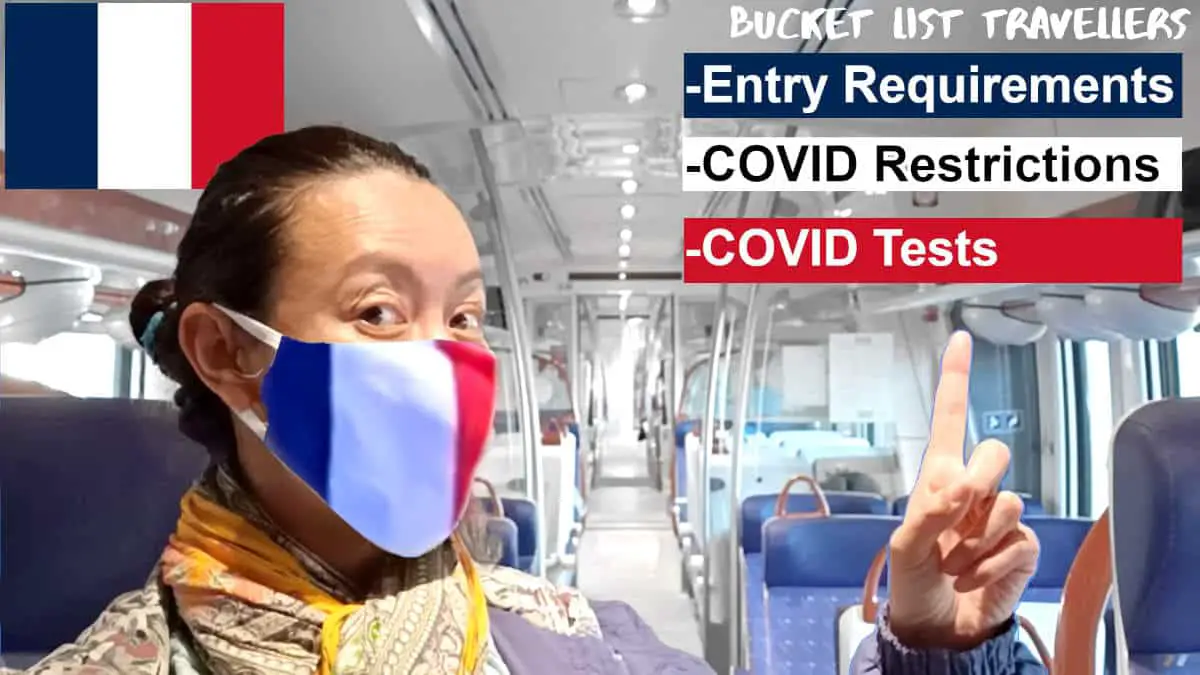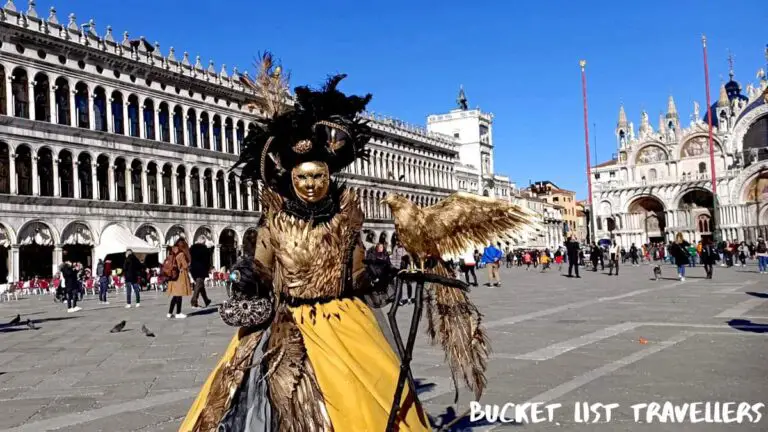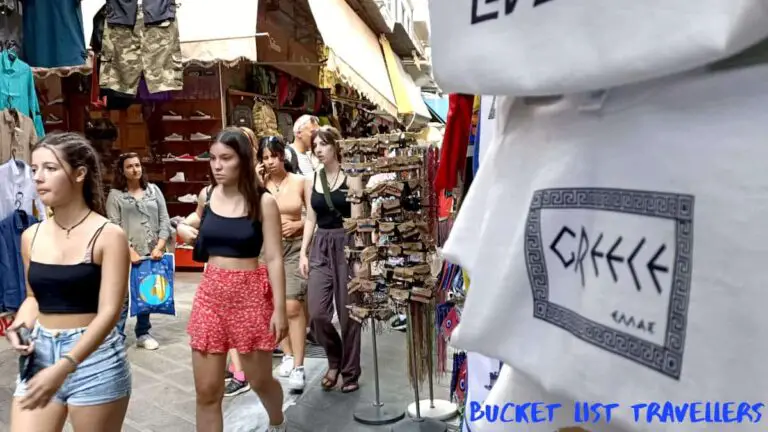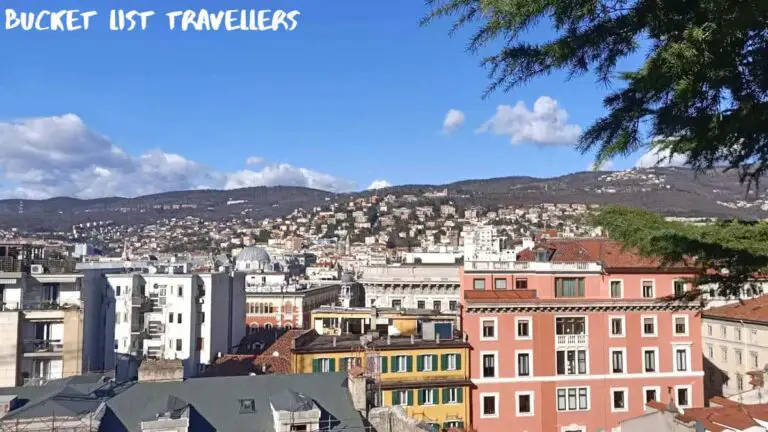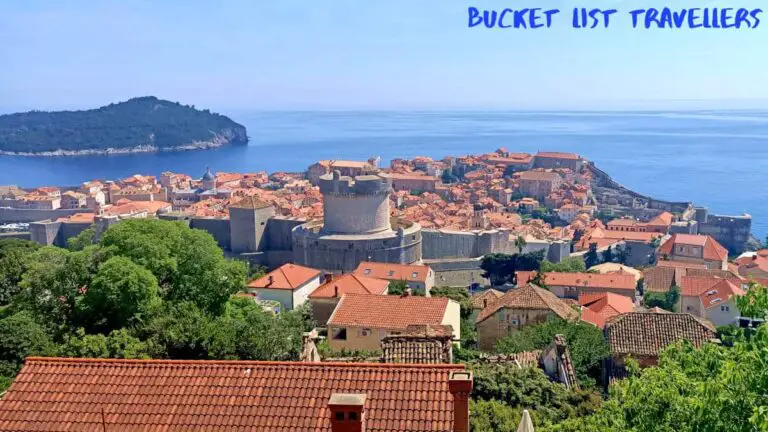With constantly changing Covid travel rules, it can be hard to keep up with France Travel Requirements. If you want a clear guide of what you need to travel France during Covid, you’ve come to the right place. Find out everything you need to know about Travelling in France during Covid in this France Travel Guide. We will give you a step by step breakdown of:
- France entry requirements
- France Covid restrictions including how to get the France vaccine pass
- How to get Covid test France
This France travel blog will be very useful for anyone considering visiting France during Covid.
Why you should go to France
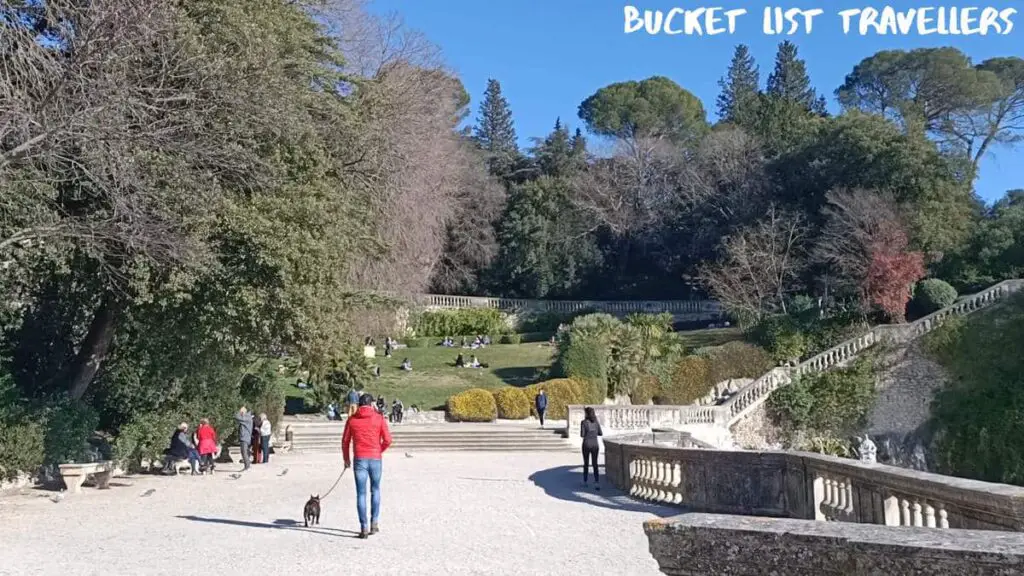
France is the ultimate travel destination. It has a wide range of beautiful destinations as well as of course amazing food! It’s easy to see why France is one of the most popular tourist destinations in the world. It is a country of fine food and wine, romance, history and art. Lovers of outdoor pursuits come to France for world class skiing, beautiful beaches and for cycling enthusiasts, who can forget the Tour de France!
France entry requirements
Before you travel to France, there are a number of entry requirements that you need to prepare for. This will vary depending on which country you are coming from.
France’s classification system for Covid risk by country
France classifies countries based on risk level. Countries are classified into “Green” countries that are deemed low risk, “Amber” countries that are moderate risk and “Red” countries where Covid is actively circulating with several variants of concern. There is also “Scarlet red” classification which is higher than level “Red”. Currently no countries are in the Red or Scarlet red classifications.
This Covid risk list gets updated regularly, so you will need to check the list for the country you are coming from when you’re ready to travel. You can find the list here.
Definition of “Fully vaccinated” for Covid in France
France considers you fully vaccinated:
- 7 days after the second injection for double injection Covid vaccines (Pfizer/Comirnaty, Moderna, AstraZeneca/Vaxzevria/Covishield/Fiocruz/R-Covi)
- OR 28 days after the injection of a single injection Covid vaccine (Johnson & Johnson)
- OR 7 days after a single injection for people with a history of Covid
People who have been vaccinated with a Sinopharm, Sinovac, Sputnik or other vaccines will need to satisfy the following to be considered fully vaccinated:
- If they are considered fully vaccinated by the WHO (i.e. they have had the Sinopharm or Sinovac vaccine), they will need a complementary dose of a Messenger RNA vaccine (Pfizer or Moderna) and France will consider them fully vaccinated 7 days after the single injection of that complementary vaccine (Pfizer or Moderna)
- If they are not fully vaccinated with Sinopharm or Sinovac or they have the Sputnik vaccine which is not recognised by WHO, then they will need 2 doses of the Pfizer or Moderna vaccine and 7 days after the 2nd injection they will be considered fully vaccinated by France
To maintain your status as vaccinated, you will need to have a Covid booster shot, which we will explain in more detail in the following section.
France rules around Covid booster shots
As of 15 February 2022 France updated its rules regarding Covid booster shots. If you received your 2nd shot more than 4 months ago and haven’t received a booster, France will consider you not vaccinated until 7 days after you received a booster shot. This booster requirement doesn’t apply to entry and is only required to get your Covid vaccine pass. For the purposes of entry into France, if you have had your 2nd shot more than 9 months before entry and have not received a booster you will be considered not vaccinated. Just to clarify, once you do receive you booster shot and wait 7 days you will be considered fully vaccinated, regardless of the time between your second shot and the booster.
Can I get vaccinated against Covid in France?
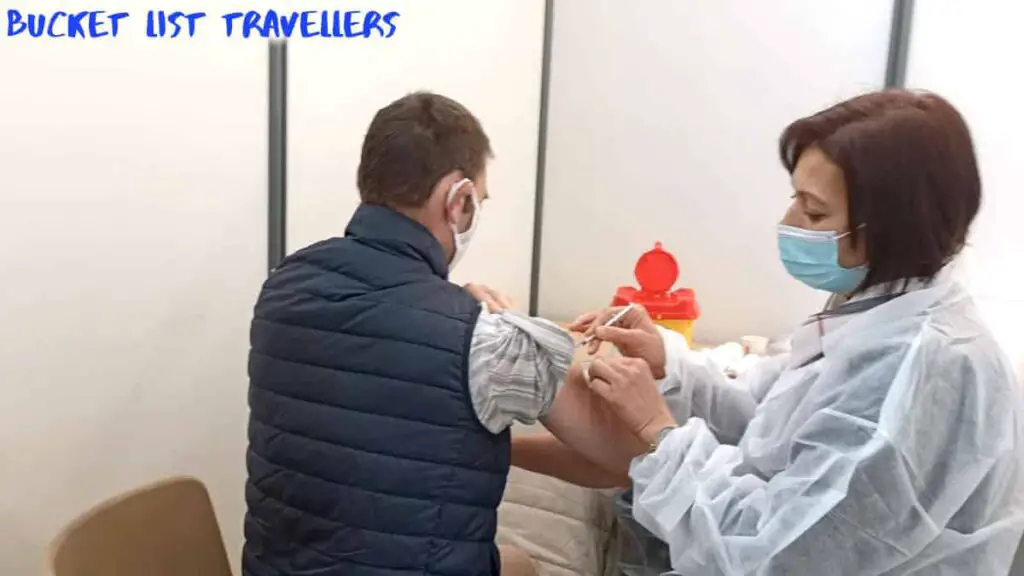
Yes, you can get a Covid vaccination in France. You will just need to provide your identification such as a passport and paperwork for any previous Covid vaccinations. Additionally, you must wait the required time between shots. France allows you get a Covid booster shot 3 months after your 2nd vaccination. Depending on availability, you can choose the brand of vaccine you receive. Once you receive your shot you will also receive a QR code which is your digital EU vaccination pass for the vaccine you received.
The location of Covid vaccination sites will vary depending on the area of France you are in. We got our Covid vaccination in Nice France and were able to find the vaccination sites for Nice France on this webiste. From our experience, France takes a centralised approach to Covid vaccinations and there are specific Covid vaccination centres set up in each area.
Specific France entry requirements by country classification and vaccination status
France Covid Entry requirements for vaccinated travellers from Green Covid risk countries
Vaccinated travellers are required to show:
- Proof of vaccination
France Covid Entry requirements for unvaccinated travellers from Green Covid risk countries
Non-Vaccinated travellers will need to show either:
- A certificate of recovery from Covid dated between 11 days and 6 months ago
- OR a negative PCR taken less than 72 hours from departure or Antigen test taken less than or 48 hours from departure (1st flight, where there are connecting flights).
Children under 12 years of age are exempt from testing.
France Covid Entry requirements for vaccinated travellers from Orange Covid risk countries
Vaccinated travellers are required to show:
- Proof of vaccination
France Covid Entry requirements for unvaccinated travellers from Orange Covid risk countries
If you are a non-vaccinated traveller coming from an Orange country, you will need to provide a compelling reason to justify your trip. Only certain reasons will be accepted.
Non-Vaccinated travellers will need to show a negative PCR less than 72 hours from departure or Antigen test taken less than 48 hours from departure (1st flight, where there are connecting flights). Children under 12 years of age are exempt from testing.
Depending on your country of origin, you may be subject to screening on arrival.
You must also provide a sworn statement certifying the absence of COVID-19 symptoms and of any contact with a confirmed case of COVID-19
Normal Entry requirements for France
In addition to the specific Covid related entry requirements, you will also need to satisfy the normal entry requirements for France:
- If you are not an EU citizen, you need a valid passport. This need to be valid for at least three months beyond the length of your stay. EU citizens will just need some form of ID card showing they are an EU citizen
- A visa, if required. This will depend on your citizenship. France is part of the Schengen area, which is a EU passport-free zone that covers most European countries. As Australian citizens, we don’t currently need a visa to travel to any member countries of the Schengen Area so long as our stay doesn’t exceed a maximum of 90 days in any one 180 day period. However at the end of 2022, the Schengen visa rules are going to change and ALL non EU citizens will need to apply for a ETIAS visa waiver before travelling to any countries in the Schengen zone.
- You may also need proof of accommodation, proof of onward travel, proof of travel insurance and proof that you have sufficient funding for your trip. We weren’t asked for any of these
Getting to France
France travel guide: arriving overland
Land border crossings for France
France has land borders with 8 countries.
There are 6 countries on France’s eastern border:
- Belgium
- Luxemburg
- Germany
- Switzerland
- Italy (we have done this border crossing)
- Monaco (we have done this border crossing)
There are 2 countries on France’s southwestern border:
- Spain
- Andorra (we have done this border crossing)
France land border transport

The main transport options for travelling overland to France are:
- Private vehicle
- Private transport operator
- Train
- Navette (Shuttle) – an example of this is La Navette Eurotunnel, which transports road vehicles between the two ends of the Channel Tunnel. Shuttle buses are also popular.
- Local bus
France travel guide: arriving by air
There are 34 international airports in France. These include:
- Charles de Gualle Airport (Airport code CDG). This is France’s primary airport and also the second busiest airport in Europe. Around 76 million passengers pass through this airport each year. It is located in Paris.
- Orly Airport (Airport code ORY). This airport is also located in Paris.
- Nice Côte d’Azur Airport (Airport code NCE). This is the most convenient airport for visiting the Côte d’Azur. It is also the airport that services Monaco.
- Lyon Saint Exupéry Airport (Airport code LYS). This is an important hub for the Auvergne-Rhône-Alpes region.
- Marseilles Provence Airport (Airport code MRS). This was the first airport in Europe to dedicate a terminal to low-cost flights.
The national airline of France is Air France.
France travel guide: arriving by sea
There is a total of 334 seaports in France. These include the ports of:
- Marseille
- Dunkerque
- Brest
- Calais
- Caen
- Cherbourg
- La Pallice
- Gennevilliers
Our experience of entry to France

We drove into France on a shuttle bus from the neighbouring country of Andorra. Andorra isn’t in the Schengen zone, but the only way to enter it is from the Schengen countries France and Spain. There were border control officers at the border. They checked some people’s luggage and looked at passports. We only had carry-on luggage, so they didn’t look at us closely. Moreover, they didn’t check our Covid certificates and we weren’t asked to provide sworn statements of not having Covid. Nor were we asked for any information on our accommodation or proof of onward travel.
Covid mandates in France 2022
Covid vaccine mandates in France
From 14 March 2022, you are no longer be required to show a Covid vaccine pass to access certain venues in France. The only places were Covid vaccine passes are still required are elderly care facilities and hospital entrances.
Mask requirements in France
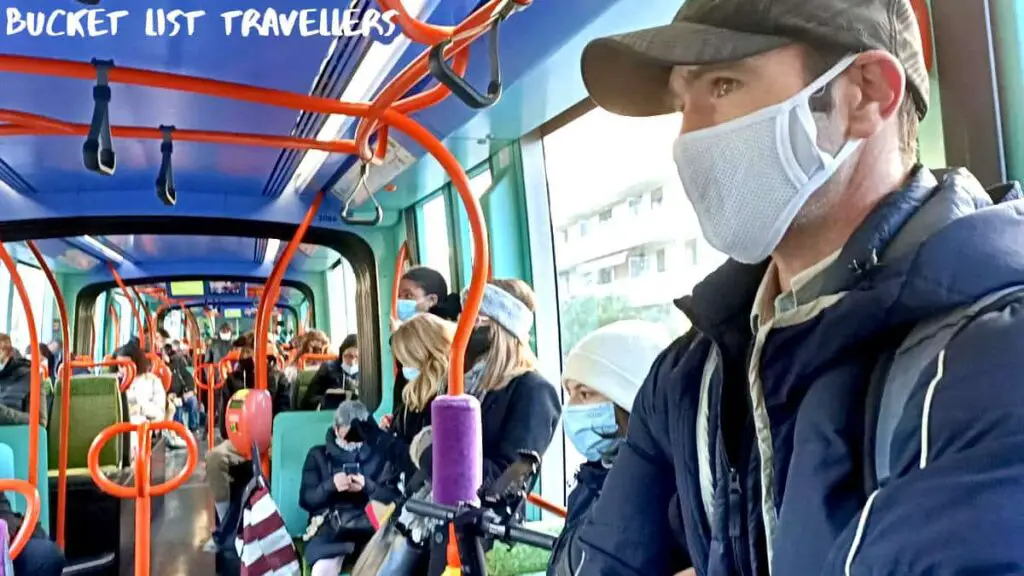
From 14 March 2022, it is only compulsory to wear a mask on public transport and in medical centres. This mask requirement applies to everyone aged 6 and over.
Masks can be paper or fabric, shop-bought or homemade, so long as they cover the nose and mouth and remain in place without needing to be adjusted.
Penalties for not following Covid rules in France
People holding a fake Vaccine Pass could face a sentence as high as five years in prison and a fine of 75,000 euros ($85,000).
If you do not comply with mask or Vaccine Pass requirements you will be subject to a 135 euro fine. If you have a second violation within 15 days, potential fines are up to an additional 1,500 euro. Additionally, if you have a third violation within 30 days you risk a further fine of up to 3,750 euros and up to 6 months in prison.
Getting a digital EU Covid Vaccine Pass in France
From 14 March 2022 there is no need to get a digital EU Covid Vaccine Pass to travel in France as you will be able to enter most places without a Vaccine Pass. The only places that you will still need a Vaccine Pass to enter are elderly care facilities and hospital entrances.
If you still want to get a Vaccine Pass in France, you can get your non-EU vaccine card converted to a digital EU Covid Vaccine Pass in person at selected pharmacies throughout France. You will need to show identification such as a passport as well as your proof of vaccination. The cost of getting a digital EU Covid Vaccine Pass is up to 36 euro each and takes about 5 minutes to process. You will receive a piece of paper with the QR code which is a digital bar-code that you can use to show proof of vaccination. This Vaccination Pass is accepted throughout the EU.
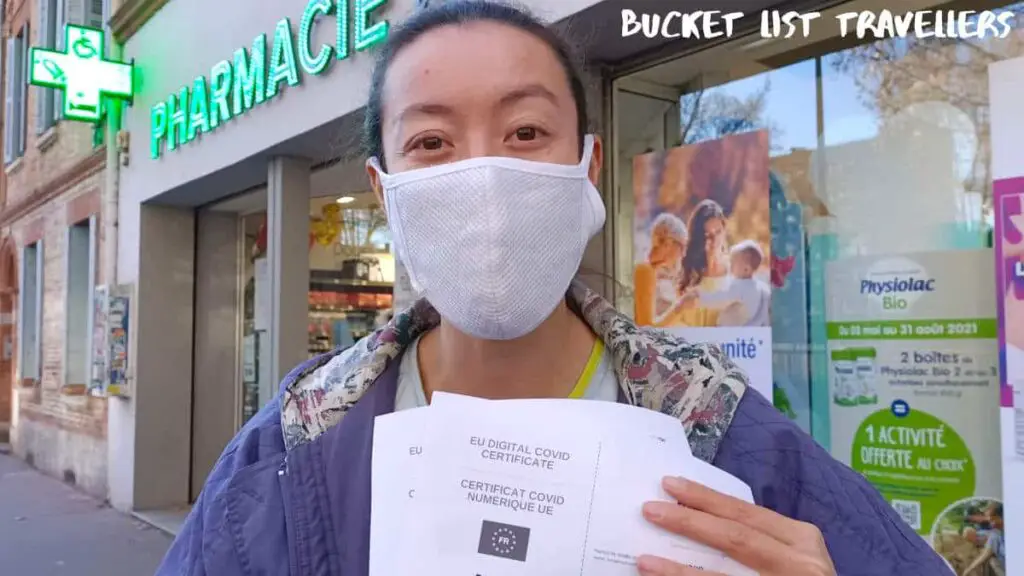
There is a map on the French health ministry’s website which shows you the locations of the pharmacies that offer this service. The map wasn’t compatible with our android phone, so we couldn’t actually view the map on our phone. So you may need to look on a laptop in order to see the map to get the locations of the pharmacies that offer this service. Another point to note is that prior to October 2021 you were able to get your non-EU Covid vaccination certificate converted into the digital EU Vaccination pass online, but now you can only do it in person.
Getting a Covid test in France
There are plenty of Covid testing stations around France offering both PCR and Rapid Antigen Tests. You can generally get Covid tests in pharmacies and laboratories. Expect to pay around 22-25 euros for a Rapid Antigen Test or 44 euros for a PCR test. You can also get a Covid test at the Paris airports for 50 euros for a PCR test, 30 euros for an Antigen test and 20 euros for a rapid PCR test. You must make an appointment in advance if you want to get the rapid PCR test at a Paris airport. Allow 1-4 hours to receive your results online of getting the rapid PCR test.
Self testing kits are also available in France, although they may not be suitable for travel purposes. They cost 5.20 euros.
What happens if I test positive for Covid while in France?
If you test positive for COVID-19 while in France, you must isolate. The duration of your isolation depends on if France considers you vaccinated or not vaccinated. As mentioned in a previous section of this blog post, if you have had your 2nd Covid vaccine more than 4 months ago you need to be boosted to be considered fully vaccinated.
France isolation rules for vaccinated people who test positive to Covid
If you are fully vaccinated, you must isolate for 7 full days after the symptoms started or the day you tested positive. This also applies to fully vaccinated children under 12 years of age that test positive. However you may leave isolation after 5 days if:
- You have received a negative antigen or RT-CPR test result
- AND you have not had any clinical signs of infection in 48 hours
If you test positive or do not perform another test, you must isolate for 7 days.
France isolation rules for non vaccinated people who test positive to Covid
If you are considered not vaccinated (including if you have not received the booster and you had your second vaccine more than 4 months ago), you must isolate for 10 full days after the symptoms started or the day you tested positive. This also applies to fully vaccinated children under 12 years of age that test positive. However you may leave isolation after 7 days if:
- You have received a negative antigen or RT-CPR test result
- AND you have not had any clinical signs of infection in 48 hours
If you test positive or do not perform another test, you must isolate for 10 days.
How long to spend in France

France is a country that you could keep returning to and never run out of things to do. In our first trip to France we spent 4 days in Paris and were able to see many of the major sites of the city. In 2022 we spent 2 months slow travelling across the south of France and loved exploring many of the charming cities and towns of this region. France really can accommodate any sort of holiday you are looking for. Additionally, it is perfect for weekends away as well as for extended trips.
France is part of the Schengen area, which is a EU passport-free zone that covers most European countries. Travellers with passports that are not covered by the Schengen agreement will typically only be allowed to stay in France or any other country in the Schengen area for a maximum of 90 days in any 180 period. This is often referred to as the 90/180 day rule.
Best Areas to Visit in France
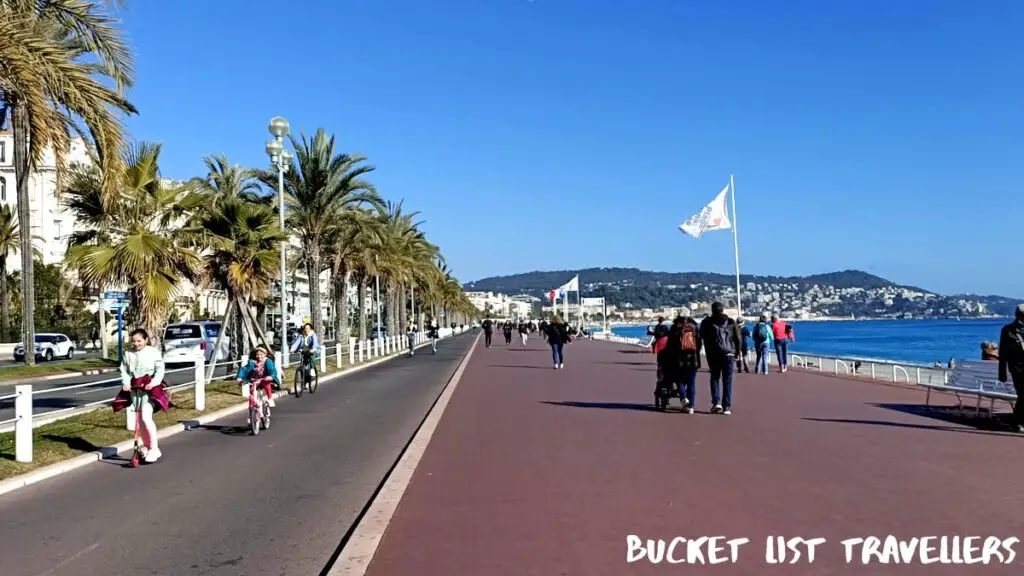
Popular areas to visit in France include:
- Cities – Paris, Nice, Marseille.
- Beach Regions – The Côte d’Azur (also known as the French Riviera), the beaches around Normandy on the Alabaster Coast, Brittany, Aquitaine, the Bay of Biscay as well as Corsica.
- Mountain areas – The Alps, The Pyranees as well as Massif Central.
- National Parks – France is home to 8 national parks. These include Écrins National Park, Cévennes National Park, Vanoise Naational Park as well as Pyrénées National Park.
- Wine regions – Bordeaux, Burgundy, The Loire Valley, Provence, The Rhône Valley as well as Alsace.
Is France safe?
France travel guide: Safety in France
We travelled through France for two months and found the country to be extremely safe. As with any country, there are good areas and bad areas. Watch out for pickpockets particularly in Paris, Marseilles, Nice, Lyon, Cannes as well as Strasbourg. Also, make sure no-one is watching whenever you are entering pin codes and never lose sight of your credit card when making a purchase.
General safety considerations in France
Other general safety considerations for travel in France:
- Drinking water – Tap water is safe to drink almost everywhere in the country. However there are a few areas within the country where the water isn’t safe to drink due to pesticide runoff.
- Mosquitoes – the tiger mosquito has been present in France since 2004. This type of mosquito spreads diseases such as Zika, dengue and chikunguya.
- Altitude sickness – France has areas of high altitude. As such, this comes with the risk of altitude sickness. If you are planning to visit any high altitude areas in France, be sure to allow sufficient time to acclimatise. If you experience any signs of altitude sickness, such as headache, nausea or vomiting, dizziness, tiredness, loss of appetite or shortness of breath, get help immediately.
- Road safety – French motorways are the safest in continental Europe. However the National and Departmental roads are much less safe. Additionally, roads are the leading cause of violent death in the country. Take care on the roads in France.
- Water safety – If you visit any of the coastal areas or lakes, take care when swimming as currents and waves may be stronger than you expect.
- Sun safety – Exposure to the sun can have adverse short-term and long-term effects on the skin, eyes and immune system. Sun protection such as sunscreen, a hat and sunglasses is very important to ensure you don’t get burnt.
As with any destination, take all of your normal safety precautions.
Final thoughts on travelling to France during Covid
If you want to learn more about travelling to France during Covid, check out our travelling to France during Covid video. The details in this video were correct as at January 2022.
France Blogs
You can find our France travel blogs below.
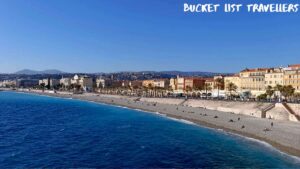
20 Best FREE Things To Do in Nice France (with map)

15 Best FREE Things To Do in Toulon France (with map)

24 Best FREE Things To Do in Marseille France (with map)

18 Best FREE Things To Do in Avignon France (with map)

10 Best FREE Things To Do in Nîmes France (with map)

14 Best FREE Things To Do in Montpellier France (with map)
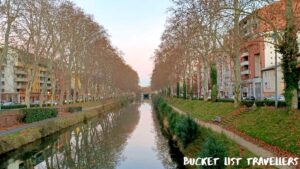
17 Best FREE Things To Do in Toulouse France (with map)

10 Best Things To Do in Carcassonne France (with map)

10 Best FREE Things To Do in Carcassonne France (with map)
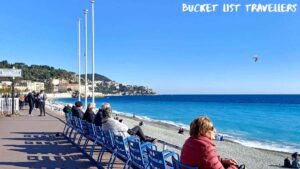
Nice Destination Guide (2024): What You Need to Know
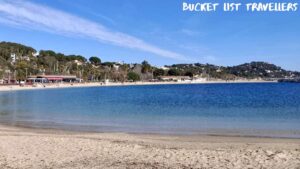
Toulon Destination Guide (2024): What You Need to Know

Marseille Destination Guide (2024): What You Need to Know

Avignon Destination Guide (2024): What You Need to Know

Nîmes Destination Guide (2024): What You Need to Know

Montpellier Destination Guide (2024): What You Need to Know
Affiliate Links
This website contains affiliate links, which means we may earn a commission on any purchases at no additional cost to you. Your support helps us continue our travels and make more travel blogs and travel videos, thank you!
